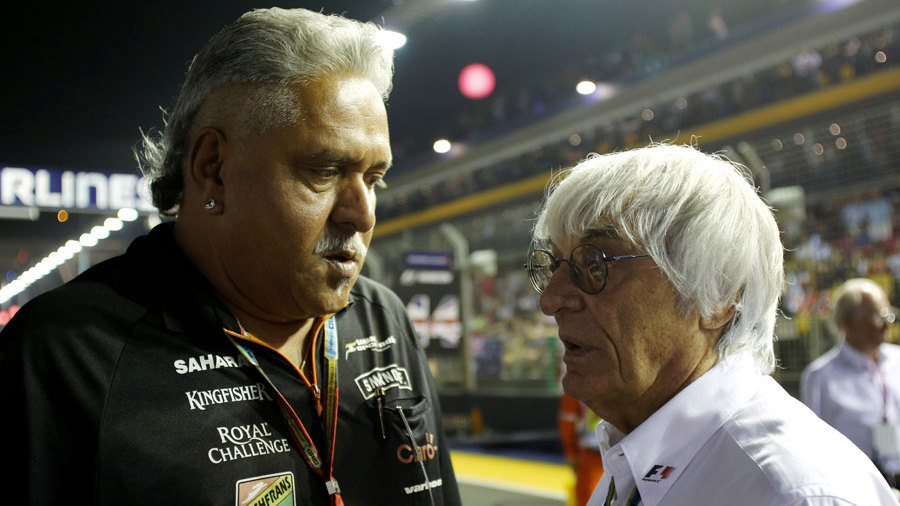- Force India
Mallya: Three-car plan exposes financial imbalance

Force India's Vijay Mallya says the prospect of a grid made up of three-car teams in 2015 exposes the "irrational" way F1's revenues are unequally shared between its teams.
F1's unequal revenue sharing
- Five of Formula One's 11 teams - Red Bull, Ferrari, McLaren, Mercedes and Williams - took 63% of the sport's underlying revenues in 2013.
- This means there was just 37% to share between six teams, only one of which (Lotus) sits on the F1 Strategy Group - giving that group little democratic input in the body which frames regulations.
Rules stipulate that if 20 teams cannot make up the grid - which will happen if two teams fold this winter - then the remaining teams can be forced to run an extra car to make up the numbers. In the build up to Singapore Bernie Ecclestone said he would rather see a Ferrari with three cars than a grid with struggling smaller teams.
Force India has been very competitive on a limited budget this year and Mallya believes there is a more simple solution to fixing the financial state of the grid.
"I know that it's been talked about at every race, talked about at every opportunity in the Formula One paddock about whether certain teams will survive or not," Mallya said. "Why is there this uncertainty? The uncertainty is because of this imbalance and certain irrationality about how revenues are shared.
"The big teams take a major slice and the smaller teams get less as a result. That is what is adding to all this speculation. The best way of doing it is to make a more rational Formula which gives everyone a chance to not just survive but compete and make Formula One even more interesting."
Mallya expects Force India to be compensated if it is forced to run a third car in 2015.
"We were going to demand compensation to build a third car, we're not going to do it for free. I'm sure the commercial rights holder realises that, he's got to make economically viable. But then, this year you see both the Mercedes ahead of everybody else. In the last few years we had Red Bulls in front of everyone else - so now you want the entire podium to be occupied by one team. It doesn't make too much sense does it?
"I can't comment on the other teams, whether they can survive or not. The situation will only arise if someone else departs. The situation otherwise cannot be enforced on anybody."
Mallya says F1 has always been about the smaller teams on the grid just as much as the teams which dominate the sport.

"The DNA of Formula One - you read books, you see films, see the days of Jack Brabham or the old McLaren or when Bernie owned a team, Williams when Frank was running the team - these are stories that give you goosebumps. They are so exciting, it's the evolution of Formula One. Now it's not a question of technological development. One constant question up and down this paddock is who will survive and who will not.
"I have never said and talked about rational revenue sharing ensuring competitiveness. But I can't afford to talk about that myself - I spend half the money and I'm still racing McLaren. Williams spends half the money and is in front of Ferrari. So I have never gone down that path of trying to tell people that Formula One's revenue sharing should make teams competitive.
"But this constant question of survivability, then the follow-on questions about three-cars etc could be eliminated once and for all - it's not good for the sport. The DNA of the sport has always had your works teams and had your private team. I don't know of any private team that has outspent a works team for the last 40 years."

